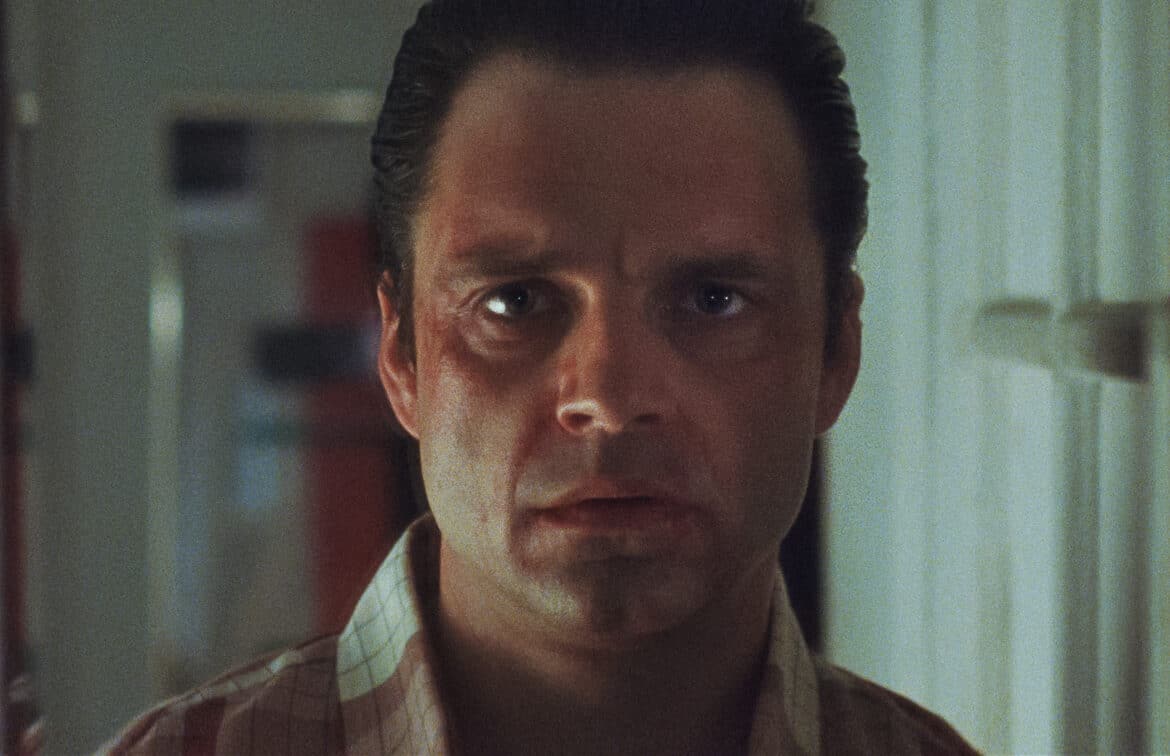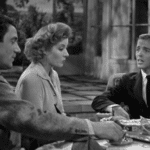In A Different Man, we meet Edward (Sebastian Stan), a man with neurofibromatosis, whose nervous energy and shy demeanor define his interactions. Early on, he strikes up a friendship with his conventionally attractive new neighbor, Ingrid, whose interest in him flirts with romantic tension before she seems to recognize an unspoken boundary. Fixated on couples around him and encouraged by his doctor’s advice that “sometimes the risks are worth the rewards,” Edward undergoes a groundbreaking medical trial—the first of its kind—which cures him of his condition.
Reinventing himself as “Guy,” Edward initially thrives, exuding newfound confidence that lands him the job, the girl, and even the role of a lifetime—playing himself in a stage production written by Ingrid. At this stage, the film presents an interesting, albeit idealized, notion: if Edward had embraced the world more, and his own self-confidence, he might have had everything he longed for. The message, while simplistic, is at least well-intentioned.
However, the narrative takes a sharp turn when Edward/Guy meets Osmond (Adam Pearson), an actor with neurofibromatosis in real life. Osmond is everything Guy is not, and suddenly, Guy’s world begins to unravel. What starts as a moral lesson morphs into an increasingly surreal and chaotic fable.

Adam Pearson and Sebastian Stan in “A Different Man” (Source: A24)
The film’s final third completely loses its grip, plunging into a bizarre, disjointed farce that left me reconsidering my potential Letterboxd rating in real time. Guy lashes out, struggling with the shifting reality around him, leading to dramatic consequences—only for the film to bizarrely reset itself into a new, unsettling normal. Even after what feels like a natural conclusion, the story lingers, adding yet another strange and jarring sequence that undercuts whatever thematic weight it might have built.
If you can buy into the surrealist tone, you may enjoy the ride. However, the film’s core message seems to be fully realized within the first hour, making the remaining descent into absurdity feel unnecessary and alienating. (That this won a Golden Globe in the Musical or Comedy category is baffling—I can’t recall a single moment of humor.)
What remains undeniably strong is the acting. Stan is fully committed to both Edward and Guy, even as the film’s logic dissolves around him. Pearson, best known for Under the Skin, brings undeniable charm and presence, making his role one of the film’s highlights. Ingrid’s character feels underdeveloped, serving more as a narrative device than a person, but the performance is solid nonetheless.
Ultimately, A Different Man feels like a film with potential that gets lost along the way. While Stan’s performance is worthy of recognition, the film itself struggles to maintain coherence, resulting in an unmoored and unsatisfying experience.









